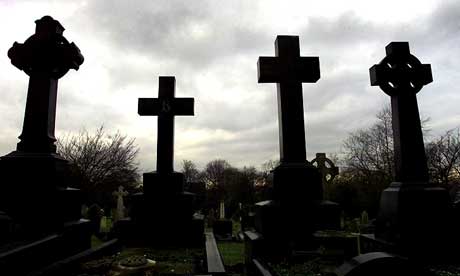
Recently, I read some sad news:
Royston Blake is dead ... He was murdered by the accountants, condemned to death because his true stories were deemed unprofitable. They took him out at dawn - gagged, cuffed and hooded – and hanged him high over Hurk Wood ... where all other writers could behold him and quake. "Heed this warning!" the accountants shouted. "Any of you bastards gets any bright ideas about unusual settings and fancy narrative devices, this is what you get. FUCK your originality - we want sales. We want cold, hard numbers!"
For those that don't know, Royston Blake is – or was – the head doorman of Hoppers wine bar and bistro in Mangel, one of the finest literary depictions of a crap town I have ever encountered. He was first brought to life in 2004 by Charlie Williams, who published the story of Royston's struggle to maintain his position as the hardest man in Mangel in the novel Deadfolk.
Deadfolk rightly received a handful of very good reviews and sold a respectable number of copies. It was followed by Fags and Lager and King of the Road – both of which also received equally favourable reviews, but sold in smaller quantities.
Until recently, that would have been a fairly typical career path for a mid-list author. Williams would have been able to keep on writing while readers caught up with the series, and hopefully one day, probably several books down the line, he would have had the breakthrough he deserves.
Today things are different. Shortly after he wrote it (and his editor said he liked it) Williams's publisher told him they won't be putting out the fourth Royston Blake novel, Wrongun. He's been reduced to trying to change their mind with a Facebook group and blog – hence the typically gloriously sweary quote above.
It's an all too familiar scenario. The squeeze on mid-list authors has been a big story in publishing for years now. It's impossible even to keep track of which authors have dropped off the radar. Publishers don't announce it, and the last thing most writers want to do is broadcast the fact they can no longer get published. Yet, it seems reasonable to estimate that dozens (maybe hundreds) are disappearing every year – judging by persistent industry chatter, not to mention occasional unsettling revelations, such as the fact that many writers have been moved to take legal action against publishers trying to escape their contract commitments.
My instinctive reaction to this annihilation of the mid-list is to blame the publishers. Quick profits are being put in front of the long-term gains that come from nurturing and developing talent. To give the most frequently cited example, Ian Rankin and Philip Pullman both published many books before hitting the bestseller lists. Would they survive today? It seems unlikely.
The counter argument is that life is harder for publishers now than it was even 10 years ago – let alone during the glory days of the net book agreement. I believe Rebecca Gray, the PR at Charlie Williams's publisher Serpent's Tail, when she says that her company still loves Royston Blake, but has been thwarted by brutal economics.
"It's not anybody's fault," she told me. "Not all books can become bestsellers. You have to be able go out there to persuade booksellers that this is the one. And because sales figures are so well kept by bookscan now, you can't really be 'creative' in the way that people used to be."
In other words, it's no longer possible to avoid the bottom line. Shops won't stock books when the computer says no.
There's some room for quibbling here. Bookscan is less likely to collect figures from the kind of independent store most likely to support the mid-list, for instance. I also don't recall seeing any promotion for King of the Road. If I didn't notice it was out, and I'm a fan of the series as well as a jobbing book-hack, would anyone else? Of course it didn't sell. Does that prove that future Mangel books won't sell if better promoted? No.
Finally, forgive my cynicism, but I can't imagine the wonderful Serpent's Tail taking such a hard-nosed course before they were bought out by Profile. But then again, would they have been bought out if their dedication to quality over quantity had been sustainable?
The sad truth is, as Charlie Williams himself said to me: "Voices like mine have to find somewhere else to go." And the question is, where?

